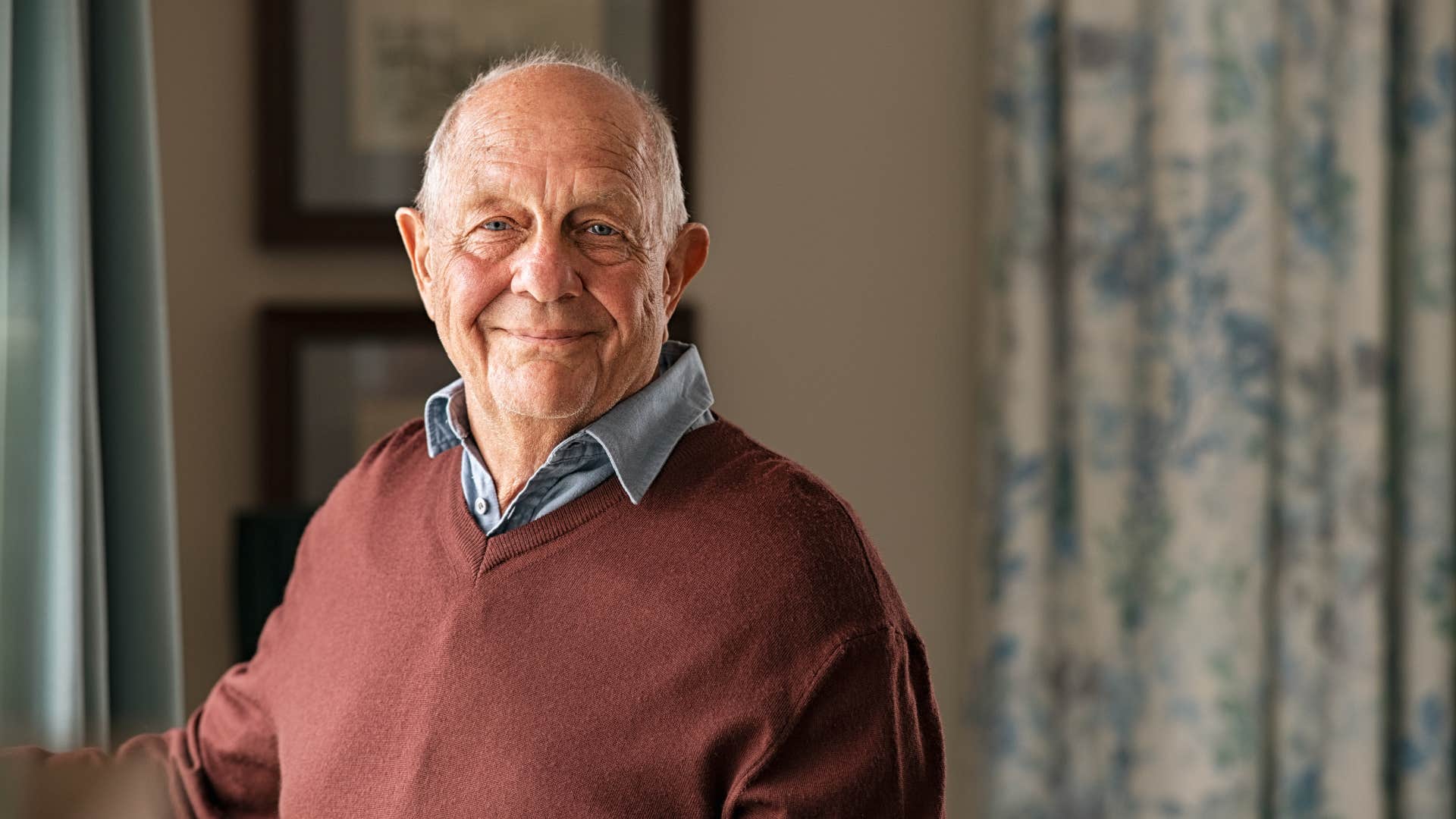If You Want Your 60s And 70s To Be The Best Years Of Your Life, Lose These 9 Habits Fast
Say hello to your happiest decades yet.
 AnnaNahabed | Canva
AnnaNahabed | Canva The beauty of life is that you're never too old to create positive change in your life. Your later years in life can look one of two ways: One version can be a life full of regrets and fear. The other version can feel peaceful and full of joy.
How can you achieve the latter version? A good place to start would be taking inventory of all your habits to single out the ones you need to stop doing as you age into your sixties and seventies. The habits that you choose, the thoughts you nurture, and the actions you take are quietly shaping the quality of our future years.
If you want your 60s and 70s to be the best years of your life, lose these nine habits fast:
1. Slouching
 Route 77 / Shutterstock
Route 77 / Shutterstock
Our physiology and our bodies contribute more to our thinking than we believe. If we go around like we were just told our pet goldfish died and slouch around all day, our thinking begins to slip. We can break the cycle by adjusting our posture, no matter how bad we feel.
Studies have shown a strong link between posture and mood. Upright posture can boost self-esteem, increase positive emotions, and reduce feelings of depression and anxiety.
2. Neglecting your needs
 Prostock-studio / Shutterstock
Prostock-studio / Shutterstock
Seemingly mundane things like cutting your toenails or ironing your creased shirt aren’t a frivolous luxury. They’re primary: How you present yourself to the world strongly influences not only how you feel but also how you think about yourself. Doubt will constantly bark at the doorstep of someone who dresses like a slob 24/7.
Research suggests that superficiality can create barriers to deeper conversations and meaningful exchanges, even with close relationships. In a world increasingly driven by social media, the pursuit of superficial connections and external validation can contribute to a distorted self-image and feelings of inadequacy.
3. Spreading yourself too thin
 Yuri A / Shutterstock
Yuri A / Shutterstock
When there are no limits on what we can do or we have too many options in front of us, we begin to wander. Our minds turn inward, and we become self-conscious. We are lost and don’t know what to do with ourselves. This is what happens in the absence of a mission.
What one thing will you commit yourself to accomplishing over the next thirty days? That’s all it takes to bring some order and excitement into your life as you get older. Make it a game. Have a mission.
4. Thinking you need to feel ready
 Ground Picture / Shutterstock
Ground Picture / Shutterstock
One of the most immediate antidotes to self-doubt is taking action. It’s a cliché because it’s so true. A lack of motion is a fertile breeding ground for doubtful thoughts.
So you must act, but you can’t act if you think you need to feel ready. You don’t. Stop looking for self-belief or confidence or anything else you've convinced yourself you need. You just need to focus on the next small step.
Research from The American Psychological Association explained that the longer you wait, the more daunting and heavy the task or goal might feel, potentially leading to increased difficulty in starting. Risk-aversion, driven by a desire for safety and familiarity, can lead individuals to stay in unfavorable situations instead of pursuing potentially more fulfilling options.
5. Complaining constantly
 CarlosBarquero / Shutterstock
CarlosBarquero / Shutterstock
What you speak into existence brings more of it into existence. The universe doesn’t care what you say — it will reinforce it and say, "Your wish is my command, bro." Complain less, and you will be shocked at how things will start going right for you.
Research suggests that constantly complaining can rewire your brain for negativity, weaken your immune system, and even damage areas crucial for problem-solving. Complaining can be draining and lead to feelings of fatigue and lack of motivation.
6. Taking every thought in your head as fact
 Ground Picture / Shutterstock
Ground Picture / Shutterstock
Your thoughts are nothing more than suggestions put forward by your mind. Some thoughts are pleasant, and others make you feel unnecessarily bad about yourself. You must let go of the idea that whatever nonsense your anxious mind spits out is in some way truthful.
It’s not. It’s an illusion. Break free of doubtful thoughts by rekindling your inner ninja, turning away from the thought, and returning to the cool real-life thing in front of you.
7. Blaming other people for your problems
 Sabrina Bracher / Shutterstock
Sabrina Bracher / Shutterstock
Blaming other people for your ills might feel empowering in the moment, but giving into that bad habit silently turns you into a husk. It reinforces your weak, victim-driven identity. Reverse this trend by taking responsibility for everything — both good and bad — that you’ve so far attracted into your life.
Blaming others prevents individuals from taking responsibility for their actions and learning from mistakes. It can stunt emotional development, resilience, and the ability to adapt to challenges. A 2022 study indicated that recognizing and acknowledging one's tendency to blame is the first step in changing this behavior.
8. Optimizing for comfort
 Ground Picture / Shutterstock
Ground Picture / Shutterstock
Life lacks an edge if we’re always seeking comfort. We get listless when we go too long without some challenge, and that’s when doubt appears. This doesn’t mean waiting for a lightning storm to run outside. You can create a challenge for yourself. Go on an adventure. Book something new in the calendar.
Research suggests that embracing discomfort as a part of learning and growth can be motivating. Rather than viewing age-related challenges as limitations, having a growth mindset can promote lifelong learning, mental flexibility, and a continued sense of spirit.
9. Not doing what you truly want to do
 Anton Vierietin / Shutterstock
Anton Vierietin / Shutterstock
If you feel like taking a long walk at five in the afternoon, do it. If you want to skip a day of yardwork, do that. Doubt emerges when we don’t listen to our needs. Listen to your body, not your judgmental and high-pressure thoughts. Give yourself that gift. Your gut knows best.
Do more of what you want, but do it with awareness, not guilt. A recent study suggested that guilt can color your judgment and decision-making, leading you to make choices not aligned with your genuine preferences or best interests, in an attempt to alleviate the feeling of guilt. Cultivating self-compassion, treating yourself with kindness and understanding, can be a vital aspect of the antidote to the negative impacts of guilt.
Alex Mathers is a writer and coach who helps you build a money-making personal brand with your knowledge and skills while staying mentally resilient. He's the author of the Mastery Den newsletter, which helps people triple their productivity.

